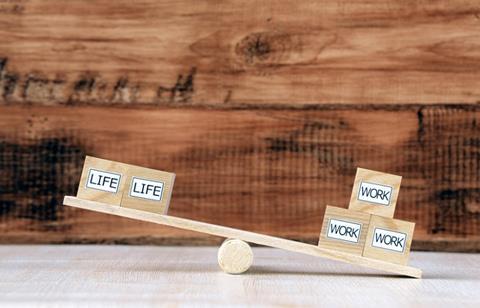
Almost a third (30%) of UK workers feel that they have a poor work-life balance in their current role, according to research by HR technology provider ADP.
According to a survey conducted in April 2018, which polled 2,518 employees across France, Germany, Italy, the Netherlands and the UK, an average of one third (33%) of European workers felt a bad day at work affected their personal life. However, the proportion rises to 38% for the UK alone.
Jeff Phipps, managing director and general manager for ADP UK and Ireland, said: "The rise of flexible working, and the widespread usage of workplace technologies to support it, has brought many benefits, yet organisations also risk encouraging an 'always on' working culture. Employees faced with this working style are likely to become less engaged, and this type of working may even have a negative impact on productivity."
Three-quarters (73%) of UK employees said they like to keep their work and home lives separate from one another. In terms of gender, 62% of women surveyed identified work-life balance as a very important feature of their ideal job, compared with 52% of men.
As far as age is concerned, the younger the employee, the less likely they are to identify work-life balance as important. Almost a fifth (17%) of workers aged 18 to 24 did not consider work-life balance an important part of their job, but this fell to one in 10 (10%) for the 40 to 49 age range. Only 9% of workers aged 50 to 64 felt work-life balance was not important, although this jumped to 13% for over 65s.
Phipps said: "Technology has increasingly blurred the lines between work and personal lives, and HR teams and business leaders should give individuals the autonomy to choose what their work-life balance looks like. Finding the right individual solution can't be achieved with a 'one size fits all' approach.
"Individuals that want to blend work and life and work more flexibly should be able to, while those that want to keep the two separate should also be able to. The most important thing is for businesses to create a culture of trust so that employees can be open when things are not going well, and work together to fix it."























